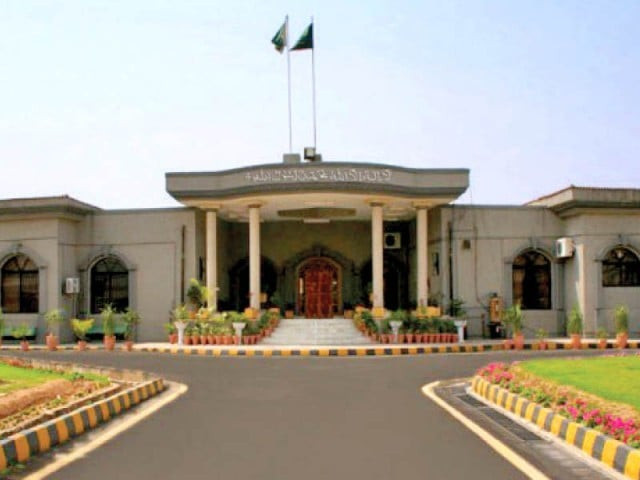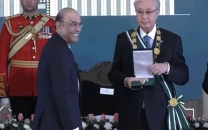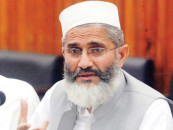IHC summons IB, FIA chiefs in leaks case
Expresses shock at revelation that state agencies lack capacity to find out who taps phone calls

The Islamabad High Court (IHC) has expressed shock at the revelation that the state does not have the capacity to find out who records private telephonic conversations of citizens and how this illegal act is carried out.
It has ordered both the director generals of the Federal Investigation Agency (FIA) and the Intelligence Bureau (IB) to appear in the court on February 19 along with reports based on their inquiries to identify the social media accounts used to release and circulate some illegally recorded voice calls.
A single-member bench of the capital’s high court comprising Justice Babar Sattar on Saturday issued its written order with regard to December 20 proceedings of a case emanating from a couple of leaked audios of Najam-us-Saqib, the son of former chief justice of Pakistan Saqib Nisar.
The court noted that the federal government has taken the position that none of the law enforcement and intelligence agencies in the country have the technological capacity to undertake electronic surveillance of citizens.
“It has also stated that] none of Pakistan’s law enforcement and intelligence agencies have the capacity or ability to determine who might be undertaking such illegal surveillance of citizens.
“Given that leaked audios released in the recent past include audios of two successive prime ministers, the position of the federal government…is truly shocking,” the order said.
The court said the case involves the state’s ability, as defined by Article 7 of the Constitution, to protect the fundamental rights of citizens guaranteed under Chapter 1 of the Constitution, including the rights to liberty, privacy, dignity and access to justice.
“This court, in discharge of constitutional duties, has no option but to undertake strict and searching scrutiny of the matter to uphold the fundamental rights at stake.”
The order stated that at the last hearing, Attorney General for Pakistan (AGP) Mansoor Awan informed the court that the FIA has written to various social media platforms to seek information with regard to the release of the leaked voice calls to determine the sources.
“Let the FIA director general also appear in person [at] the next date of hearing [February 19] and brief the court as to how such surveillance and recording of phone calls can take place in Pakistan.
“Let the [IB] also conduct an inquiry and analysis to identify the social media accounts used to release and circulate the illegally recorded voice calls and the social media accounts that shared such voice calls in view of time stamps of sharing.
“Let IB director general have such a report filed in three weeks and also appear in person [at] the next date of hearing to brief the court as to who can surveil citizens of Pakistan; how such surveillance is affected and whether the State of
Pakistan has the ability to counter illegal surveillance<” the order said.
The court also ordered the Pakistan Telecommunication Authority (PTA) chief to file a report stating under what legal authority lawful intercepts related provisions have been included in licenses of telecom service providers.
Lawful intercepts refer to the legal and authorized monitoring, interception, or surveillance of communications such as phone calls, emails, or other forms of digital communication by government or law enforcement agencies.
The court also decided to name the Pakistan Broadcasters Association (PBA) and the All Pakistan Newspaper Society (APNS) as parties in the case “as the illegally recorded voice calls [were] broadcast across electronic media and reported in the print media.”
Seeking assistance of journalists with regard to the role of the electronic media and the print media in relation to publishing private conversations and videos, the court appointed journalists Mazhar Abbas, Javed Jabbar and one journalist to be nominated by the Pakistan Federal Union of Journalists (PFUJ) as its assistants.



















COMMENTS
Comments are moderated and generally will be posted if they are on-topic and not abusive.
For more information, please see our Comments FAQ